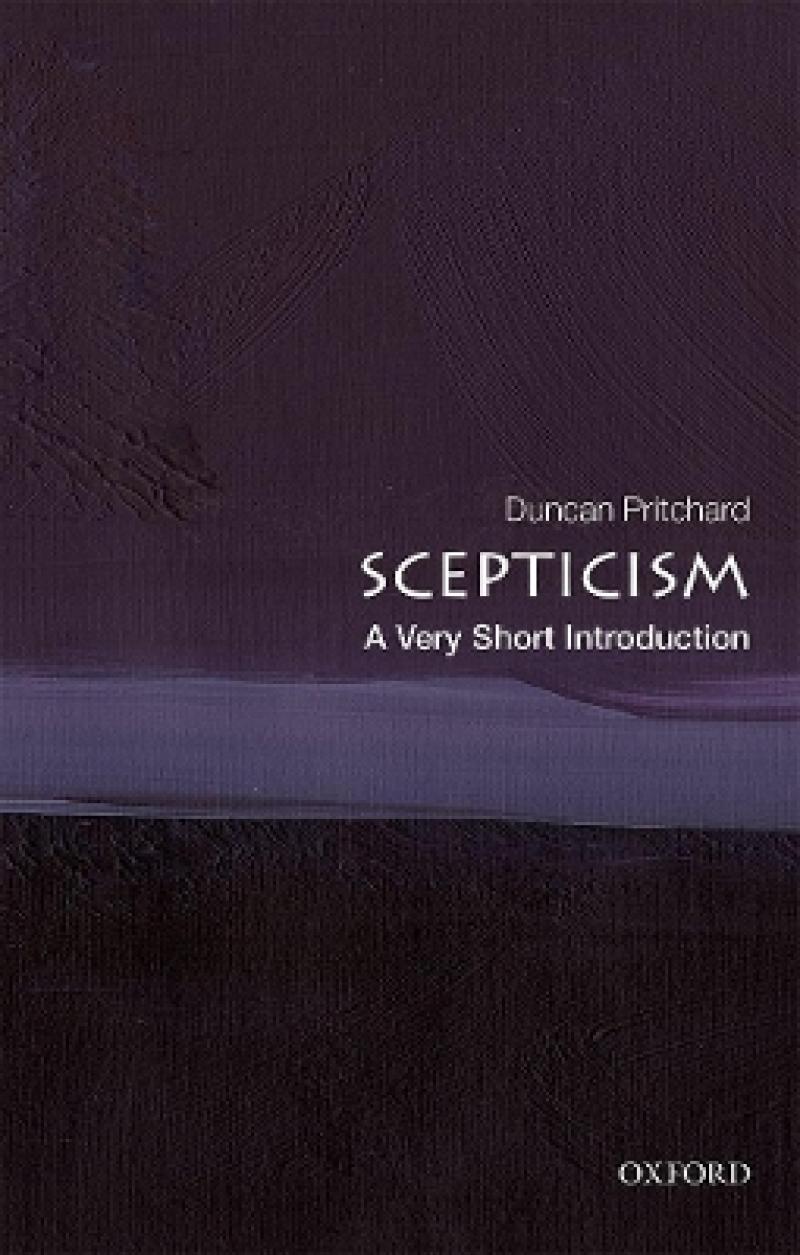Throughout history scepticism and the urge to question accepted truths has been a powerful force for change and growth. Today, as we are bombarded by adverts, scientific studies praising the latest superfoods, and political rhetoric, a healthy amount of scepticism is widely encouraged. But when is such scepticism legitimate - for example, as a driver of new ideas - and when is it problematic? And what role might adopting a sceptical outlook play in leading an intellectually virtuous life?
In this Very Short Introduction Duncan Pritchard explores both the advantages of scepticism, in challenging outdated notions, and also how it can have unhelpful social consequences, in generating distrust. He considers the role of scepticism at the source of contemporary social and political movements such as climate change denial, post-truth politics, and fake news. Pritchard also examines the philosophical arguments for a radical form of scepticism which maintains that knowledge is impossible, and explores some of the main responses to these arguments. Finally, he considers the part scepticism might play in applying better thinking and learning to achieve a more meaningful life.
ABOUT THE SERIES: The Very Short Introductions series from Oxford University Press contains hundreds of titles in almost every subject area. These pocket-sized books are the perfect way to get ahead in a new subject quickly. Our expert authors combine facts, analysis, perspective, new ideas, and enthusiasm to make interesting and challenging topics highly readable.
Les mer
This book explores the nature of scepticism, asking when it is legitimate, for example as the driver of new ideas, and when it is problematic. It also tackles how scepticism is related to contemporary social and political phenomena, such as fake news, and examines a radical form of scepticism which maintains that knowledge is impossible.
Les mer
1: What is scepticism?
2: Is knowledge impossible?
3: Defending knowledge
4: Scepticism as a way of life
Further reading
Index
Explores the nature of scepticism, asking when it is legitimate and when it is problematic
Relates the topic of scepticism to important social trends, such as fake news, post-truth politics, and climate change denial
Examines the philosophical arguments for a radical form of scepticism which maintains that knowledge is impossible
Part of the Very Short Introductions series - over ten million copies sold worldwide
Les mer
Duncan Pritchard is Distinguished Professor of Philosophy at the University of California, Irvine, and Professor of Philosophy at the University of Edinburgh. His books include Epistemic Luck (OUP, 2005), Epistemological Disjunctivism (OUP, 2012), The Nature and Value of Knowledge (OUP 2010), co-authored with Alan Millar, Adrian Haddock, and Epistemic Angst (Princeton UP, 2015). In 2007 he was awarded the Philip Leverhulme Prize,
and, in 2011, he was elected to a Fellowship of the Royal Society of Edinburgh.
Les mer
Explores the nature of scepticism, asking when it is legitimate and when it is problematic
Relates the topic of scepticism to important social trends, such as fake news, post-truth politics, and climate change denial
Examines the philosophical arguments for a radical form of scepticism which maintains that knowledge is impossible
Part of the Very Short Introductions series - over ten million copies sold worldwide
Les mer
Produktdetaljer
ISBN
9780198829164
Publisert
2019
Utgiver
Vendor
Oxford University Press
Høyde
173 mm
Bredde
108 mm
Dybde
9 mm
Aldersnivå
G, 01
Språk
Product language
Engelsk
Format
Product format
Heftet
Antall sider
144
Forfatter
